The Gays ruin everything
Instead of editing my Brokeback Gorilla post to add more about the anti-Brokeback Mountain movement, I figured I'd just dump it here, 'cause I read this study about attention spans that said -- hey, come back here!
So I took a tour of Technorati to find some Brokebacklash and came upon this glinting nugget of huh? from the Albert Mohler over at Baptist Press:
Acceptance of gay lifestyles is ruining friendships for boys and men. Well, Anthony Esolen, a professor of English at Providence College in Providence, Rhode Island, thinks so anyway.
Yes, those nutty feminists hate little boys and their stupid little boy friends and their stupid toy trucks and sand boxes and grass stains and the coal mines they'll eventually grow up to not work in! Feminists hate men so much that we want to force all of them to be gay so they'll pair off and stop hitting us up for sex, which we also hate. That has to be it!
I was going to just ignore this entire column until I got to the part about Lincoln. And I started wondering why the author didn't contemplate the possibility that modern readers wonder if Lincoln is gay because "homosexual" (and its related terms like "gay" and "lesbian") exists (and is quite the buzzword) in our lexicon, while it didn't exist during Licoln's actual life? What I mean is, prior to about 1870 (Licoln died in 1865), there was no word for a lifestyle in which one preferred romantic and sexual entanglements with someone from the same gender (a Hungarian man coined the word in a pamphlet advocating the decriminalization of sodomy). But it happened. Just as much as it happens now, even if it probably wasn't as prominent (at least throughout American history) because of rigid social mores. Throughout written history, however, there has been acknowledgement and even acceptance of homosexual behavior throughout many cultures, but the word describing a lifestyle isn't all that old*.
And what of the female friendships that have existed throughout time? Do they remain uninfluenced by wider acceptance of homosexuality? Or have women's close friendships always been assumed to have an underlying current of eroticism? What of the Sapphic lounging and the infamous "romantic friendships" between women in the Victorian era? These close friendships were relatively normal, and their influence continues to this day: women friends can hug and even kiss without being seen as lesbians. Men, on the other hand, go to the theater and sit with an empty seat between them. Why?
Esolen wants men to be able to be affectionate toward their pals, but he's blaming the existence of the awareness of homosexuality as a reason why men can't canoodle with their buds. Why doesn't he see that if we were more inclusive and accepting of gay lifestyles and same-sex (not necessarily erotic) affection, no one would care to be mistaken for gay because it wouldn't be considered an insult or inherently less valuable than straight?
Why must Esolen blame it on the feminists if straight men and boys freak out and withdraw all their human emotions because they don't want to be labeled homosexual? Isn't that the fault of the people who encourage a rigidly defined set of behaviors for each gender? "Men don't cry. That's gay." I doubt there's ever been a feminist who uttered that nonsense.
Feminists are the ones fighting for an inclusive view of human sexuality in which men and boys shouldn't be marginalized for acting outside of their socially defined gender norms, just like women shouldn't be relegated to certain roles or certain behaviors because of their gender. Feminists are the ones who are trying to help gay men and lesbians reach full socioeconomic equality. How does this make it impossible for men to show affection to one another and form friendships?
From Ex-Gay Watch:
But, gosh, doesn't blaming the feminists and their follies make for a much more amusing jaunt through unreality?
*Incidentally, I also learned that "Turner" used to be a pejorative term for homosexuals, but Wikipedia told me, so I don't know if I should believe it or not.
So I took a tour of Technorati to find some Brokebacklash and came upon this glinting nugget of huh? from the Albert Mohler over at Baptist Press:
Acceptance of gay lifestyles is ruining friendships for boys and men. Well, Anthony Esolen, a professor of English at Providence College in Providence, Rhode Island, thinks so anyway.
"For modern American men, friendship is no longer forged in the heat of battle, or in the dust of the plains as they drive their herds across half a continent, or in the choking air of a coalmine, or even in the cigar smoke of a debating club," Esolen notes. Most men no longer find themselves in situations that encourage and inculcate straightforward male friendships. As Esolen observes, "the sexual revolution has also nearly killed male friendship as devoted to anything beyond drinking and watching sports; and the homosexual movement, a logically inevitable result of forty years of heterosexual promiscuity and feminist folly, bids fair to finish it off and nail the coffin shut."
What this means for grown men is bad enough, but Esolen is persuasive when he argues that the most vulnerable victims of friendship's demise are boys.
Yes, those nutty feminists hate little boys and their stupid little boy friends and their stupid toy trucks and sand boxes and grass stains and the coal mines they'll eventually grow up to not work in! Feminists hate men so much that we want to force all of them to be gay so they'll pair off and stop hitting us up for sex, which we also hate. That has to be it!
[Esolen] reminds us all that boys need the uncomplicated camaraderie of other boys in order to negotiate their own path to manhood. The friendships shared among boys and young men allowed them to come together around common interests and activities and to channel their natural curiosity and energy into participation in shared activities. As young males band together, Esolen acknowledges that they "might do a thousand things fascinatingly creative and dangerously destructive." This is where adults must step in to guide these energies in positive directions and to erect boundaries to prevent or discourage bad behavior. In any event, these boys would not, as Esolen argues many boys do now, stagnate. "They would be alive," he asserts.
All this requires an uncomplicated heterosexual expectation. Esolen points to the fact that Abraham Lincoln, as a young man, had often shared a bed with his friend Joshua Speed. The two shared letters that spoke of their appreciation and love for each other. Modern readers have jumped to the conclusion that Lincoln must have been a homosexual. Esolen rightly argues that this "evidence" proves exactly the opposite. Lincoln and Speed were free to share a bed together, and to speak of their deep friendship, precisely because they did not fear any revelation of this fact or of their relationship to the public. Why? Because the nearly universal understanding of all homosexual behavior as immoral and deviant created a context in which no one would have had the expectation that Lincoln would be involved in homosexuality. As Esolen explains, "The stigma against sodomy cleared away ample space for an emotionally powerful friendship that did not involve sexual intercourse, exactly as the stigma against incest allows for the physical and emotional freedom of a family."
I was going to just ignore this entire column until I got to the part about Lincoln. And I started wondering why the author didn't contemplate the possibility that modern readers wonder if Lincoln is gay because "homosexual" (and its related terms like "gay" and "lesbian") exists (and is quite the buzzword) in our lexicon, while it didn't exist during Licoln's actual life? What I mean is, prior to about 1870 (Licoln died in 1865), there was no word for a lifestyle in which one preferred romantic and sexual entanglements with someone from the same gender (a Hungarian man coined the word in a pamphlet advocating the decriminalization of sodomy). But it happened. Just as much as it happens now, even if it probably wasn't as prominent (at least throughout American history) because of rigid social mores. Throughout written history, however, there has been acknowledgement and even acceptance of homosexual behavior throughout many cultures, but the word describing a lifestyle isn't all that old*.
And what of the female friendships that have existed throughout time? Do they remain uninfluenced by wider acceptance of homosexuality? Or have women's close friendships always been assumed to have an underlying current of eroticism? What of the Sapphic lounging and the infamous "romantic friendships" between women in the Victorian era? These close friendships were relatively normal, and their influence continues to this day: women friends can hug and even kiss without being seen as lesbians. Men, on the other hand, go to the theater and sit with an empty seat between them. Why?
Esolen wants men to be able to be affectionate toward their pals, but he's blaming the existence of the awareness of homosexuality as a reason why men can't canoodle with their buds. Why doesn't he see that if we were more inclusive and accepting of gay lifestyles and same-sex (not necessarily erotic) affection, no one would care to be mistaken for gay because it wouldn't be considered an insult or inherently less valuable than straight?
Why must Esolen blame it on the feminists if straight men and boys freak out and withdraw all their human emotions because they don't want to be labeled homosexual? Isn't that the fault of the people who encourage a rigidly defined set of behaviors for each gender? "Men don't cry. That's gay." I doubt there's ever been a feminist who uttered that nonsense.
Feminists are the ones fighting for an inclusive view of human sexuality in which men and boys shouldn't be marginalized for acting outside of their socially defined gender norms, just like women shouldn't be relegated to certain roles or certain behaviors because of their gender. Feminists are the ones who are trying to help gay men and lesbians reach full socioeconomic equality. How does this make it impossible for men to show affection to one another and form friendships?
From Ex-Gay Watch:
Of course the SBs refuse to recognize that acceptance of gay people and eliminating the mistreatment of gay youth will go a long way towards encouraging an environment in which one man can be affectionate with another, regardless of his orientation. It has been my observation that straight men who are both comfortable with their sexuality and comfortable around gay people are often quite physically demonstrative towards other men. They don't see such displays of friendship as either a threat to them or to how they are perceived.
But, gosh, doesn't blaming the feminists and their follies make for a much more amusing jaunt through unreality?
*Incidentally, I also learned that "Turner" used to be a pejorative term for homosexuals, but Wikipedia told me, so I don't know if I should believe it or not.




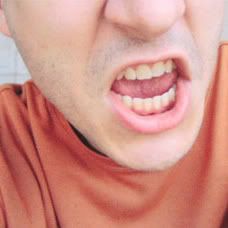
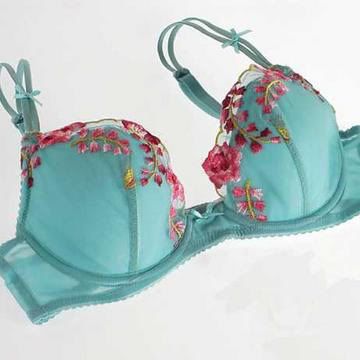



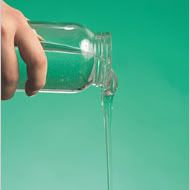

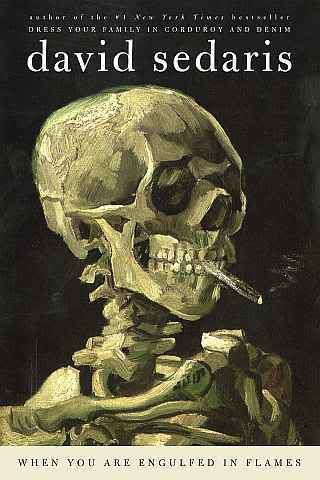
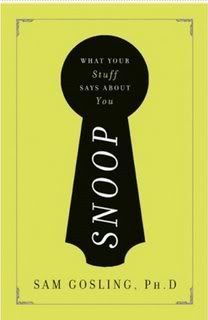

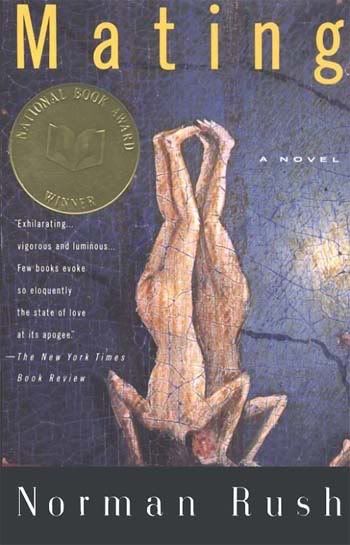





6 Comments:
I really dig that President Licoln. He was a fucking igger lover, though.
Watch it, lady! This blog is monitored by the PC Police. And the Devilishly Omitted Consonant Police. They're hard-asses.
I wonder if Lincoln took it up the ass. He liked them logs.
I was going to post something serious as a young man who is oft-accused of being gay because of his overly friendly relationship with his friends. But then the Lincoln jokes started rolling.
Oh well. He was a filthy Republican anyway.
Whateva! We all know he's a filthy Democrat who likes to wear eyeliner and shape his hair in outlandish ways.
Random useless info (my specialty).
Funniest pejorative term for (male homosexuals comes from the Caribbean--"anteeman"
Post a Comment
<< Home